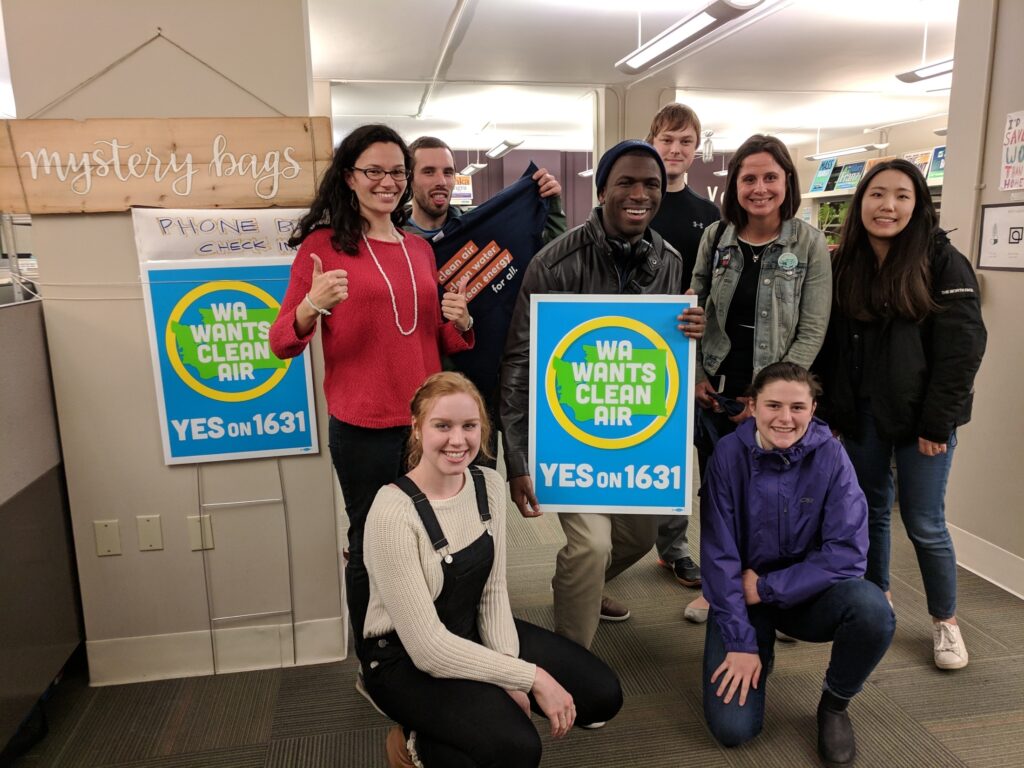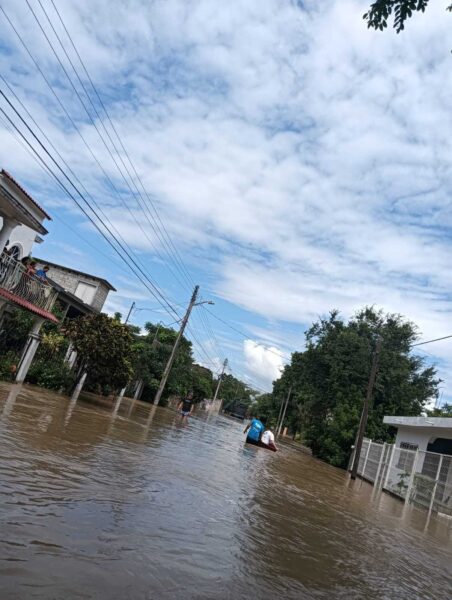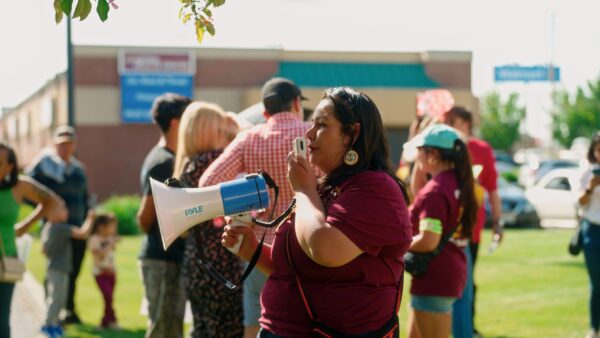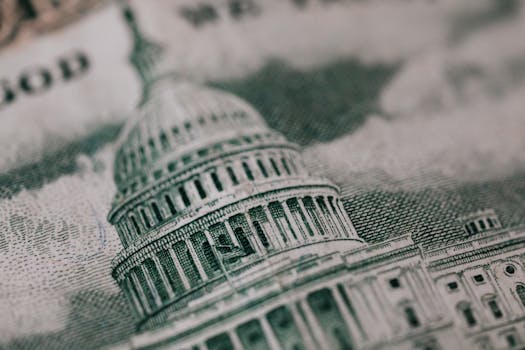
Christina Billingsley (she/her), the first person of color to chair the board of Washington Conservation Action (WCA), started fighting for the environment while still in middle school. In decades of this work, she has often found herself building bridges between people, between communities, between cultures, and between institutions. This combination of savvy, determination, and strategic thinking make her uniquely suited to help WCA navigate the current fractured, contentious landscape.
“I bring a personal and a professional experience that has given me clarity to see various systems like racism, ageism, sexism, and colonialism playing out in relationships between organizations and people even in cases where neither side may not recognize the history, or context, that they carry with them,” says Billingsley. “My goal is always to disentangle the politics and emotions driving a conflict and humanize our issues so that we can achieve smart policymaking. I have seen this strategy work time and time again on multiple scales of impact, and I know this is what is needed in the current moment.
Billingsley joined WCA’s board in 2019 and previously served as vice chair. A self-described “policy nerd and justice advocate,” she recently joined Azimu Group, a Seattle-based consulting firm that supports institutions to better serve those most harmed by this era’s global disruptions, such as climate change and automation. Before that, she worked for many years at the Port of Seattle, where she spearheaded an effort with Duwamish Valley community partners to co-write the first environmental justice policy at a port authority.
She also worked for several years in the non-profit and the social research sectors in the United States, Great Britain, India, and Turkey. Her work portfolio spans diverse areas, including sustainable development in rural South India, youth organizing for climate action across the United States, and inclusive civic engagement to elevate the voices of Asian American voters in Washington State.
Christina earned her MSc in Social Policy and Development from the London School of Economics and Political Science and completed a dual BA in International Studies and History from the University of Washington.
In her spare time, she reads, gardens with her child and enjoys watching Star Trek.
She sat down recently to answer a few questions:
You talk about bridge building. Tell us more about that. How did that get started?
I was born and raised in Dallas, Texas. I’m a mixed person, as my mom immigrated to the United States from South India and my dad’s heritage is mixed German English with an undeniable Texan flare. I was raised in a blended household with my siblings where we experienced cultural practices from both sides and watched our parents work full time, often multiple jobs, to support us financially.
At a young age, I learned a lot of conflicting cultural values and how they can be reconciled to keep a unit (our family) chugging along – concepts like individualism versus centering the community, ways of managing conflict and communication around it, even where to invest your time – working harder or smarter, all ways of strategizing to survive and try to thrive. I’m grateful for the near and extended family that I learned these skills from, even when it was hard.
Visually, as a mixed-race person, people aren’t sure what they’re seeing when they see me so what really matters is what happens after I enter a room. Audibly, I sound American but speak multiple languages, so with that superpower I’ve been able to build relationships in places many others can’t or are not willing to.
Politically, I come from an era of fiery Gov. Ann Richards’ blue Texas, but my international and Northwest experiences as part of the environmental movement have tempered and fine-tuned my approach to the work. I offer a wide spectrum of technical knowledge, expertise and emotional intelligence and that invites me into a lot of rooms, and in turn, gives me insights that help create links between those rooms. I believe that entering a space and intentionally bringing my whole-self to the table has served me well, and I plan to continue this practice as WCA’s chair.
How did you get started, fighting for nature, for environmental justice?
Clean air makes sense. Clean water makes sense. Because I understood that, I started organizing at 13. It was basic stuff: pushing for recycling and environmental education in my community. I learned the true value of advocacy with the Sierra Student Coalition, which was the Sierra Club’s youth-led organizing branch, which the Sierra Club has recently defunded and dismantled. But that was where I began – I learned campus organizing skills, grassroots campaign development, fundraising, and so much more from other youth environmental organizers across the continent from the United States, Canada, and Puerto Rico. In that community, I learned firsthand from my youth peers about policy development, about environmental justice and ageism within our movement. That’s when I began to understand the dynamic of environmental racism.
You could have gone into a career like diplomacy, why did you choose the path you did?
At one point, I did aspire to work for the United Nations Environmental Programme. But the more I studied international development—the field’s history and its underlying theories—the more I realized how I didn’t want to be involved in “the old ways” of making a difference. I wanted to be a part of something new, community-centered, and more accountable.
Oftentimes, in many sectors, we lean on an American cultural perspective to solve global problems, which results in approaches and solutions that aren’t relevant to what’s experienced on the ground. This dilemma ends up in inefficient or even wasteful investments. That’s not how poverty is solved. That’s not how the environment is protected for future generations.
When I was doing climate change research in India, I observed the brilliance of people on the ground – local folks doing the best they could with their own unique assets – to adapt to climate change impacts in their area. That experience very much has informed my worldview and personal theory of change. I decided early in my career that I wanted to connect people like that to effective policy and systems.
You’re a historian, how would you put our current situation in context?
Backlashes against racial justice have always occurred. Whenever we make a step forward, there are forces, primarily fear-based, that want to pull us back and control the narrative.
Right now, that means that we will have to think differently to counter those ideas. I believe that it’s valuable to read into this history and how others have navigated through it. I’m finding support by looking back at writings from bell hooks, Arundathi Roy, James Baldwin, and many others – thought leaders whose places in various justice movements are rooted in history and countering fear by truth telling, even when it’s hard.
We need to be brave, and at the same time, acknowledge our own spheres of control: the actions we take, the relationships we sustain, the words we use. Each of us need to take a hard look at that now. We need to re-consider what we do have power over, and actively choose the best strategies that each of us can use to choose courage, choose freedom, and choose sustainability.
How will we hold the line in Washington state?
It’s important to remember that we’re doing things differently in Washington state. We are a model for the nation. We have the country’s strongest carbon pricing law. We have passed laws that recognize the public health data that repeatedly demonstrates how racial and economic injustices disproportionately harm low-income communities of color. We have a clean fuels law, laws that are designed to thoughtfully guide the development of our fastest growing cities and counties, laws that protect our shorelines and rural resources and so much more. WCA had a hand in all of that.
At WCA, we will continue leaning into Tribal sovereignty, thoughtful and effective policy development, building a bench of elected environmental and community champions to govern. We will continue to get all Washingtonians excited about engaging in local and state government advocacy for our shared interest. We will continue to show how clean air, clean water, and clean energy are all connected to what people want in their communities.
Today, WCA is extremely strong as an organization. We are growing and strengthening new relationships and connections in every part of the state on behalf of our environment, while also taking the steps to build a stronghold in Washington that models a bold and vibrant democracy for all to participate in. This two-pronged approach will keep us resilient and powerful despite what the federal administration tries to throw at us.
Your donation ensures a sustainable future.


